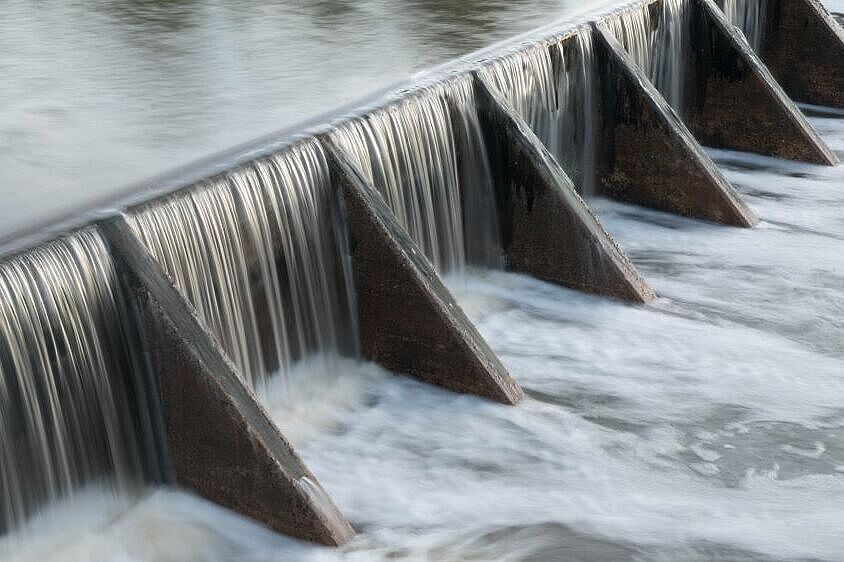In a joint statement, 65 experts from 30 scientific institutions urgently recommend that German federal policy-makers stop subsidising inefficient small hydropower plants from EEG or tax revenues. If policy-makers should want to continue to promote larger hydropower plants, the experts advise that this should be made dependent on the ecological migratability of the plants and consistent compliance with legal requirements such as the Federal Water Resources Act. In the scientific memorandum "Energiewende nicht auf Kosten der aquatischen Biodiversität" (Energy transition not at the expense of aquatic biodiversity) published today, the experts emphasise that the use of hydropower is indisputably a major reason why Germany fails to meet binding environmental targets in European biodiversity and water protection, e.g. those of the EC Water Framework Directive and the Flora-Fauna-Habitat Directive. They therefore recommend seven environmental policy initiatives to harmonise hydropower use with the legal goals of water body and biodiversity protection and thus, defuse conflicting goals between climate and biodiversity protection.
"Hydropower is renewable, but not necessarily environmentally friendly," emphasised Dr Martin Pusch, scientist at the Leibniz Institute of Freshwater Ecology and Inland Fisheries (IGB), who coordinated the cross-institutional memorandum of the expert scientists.
Small hydropower plants with negative environmental balance - dismantling would bring back important ecosystem services
"In principle, all hydropower plants significantly impair the ecological condition of the streams and rivers they use. However, this is extremely the case with small hydropower plants: here, the low societal benefit due to little electricity generation is offset by the high ecological costs due to massive environmental damage. The environmental balance of small hydropower plants is therefore clearly very negative," explained Martin Pusch.
The scientists from the 30 different research organisations therefore come to the unanimous conclusion that public support for small hydropower plants through levies or subsidies is environmentally harmful, inefficient in terms of the energy transition and macroeconomically uneconomic. The more than 7,800 small hydropower plants in Germany with a maximum capacity of less than 1 megawatt would have contributed less than 0.5 per cent to German electricity production in 2020, making them insignificant for climate protection and the energy transition. However, due to their high number, they seriously affect the ecological condition of about one third of German watercourses. Instead, the decommissioning and dismantling of these small hydropower plants should be promoted. In this way, important ecosystem services of water bodies for the environment and society, such as natural flood protection, stable landscape water balance, self-purification, cooling effect and water-related local recreation, could be restored. This is particularly important in view of the expected consequences of climate change and strengthens the natural resilience of water bodies.
Support for large hydropower plants should depend on binding compliance with ecological standards
According to the researchers, all of the approximately 8,300 hydropower plants in Germany contributed only 3.3 per cent to total German and only 8 per cent to renewable electricity production in 2020. Moreover, even with large hydropower plants, it can neither be prevented nor compensated for that ecologically valuable river habitat is also lost far upstream and downstream of the dam. The artificial damming leads to warming, algae development and silt formation and retains coarser river sediment. This sediment is then missing downstream, which also promotes the deep erosion of long stretches of streams and rivers. In addition, dammed water bodies emit considerable amounts of methane, a particularly climate-damaging gas, as a result of silting up.
If, despite the existing problems, policymakers want to continue to support larger hydropower plants with a maximum capacity of more than 1 megawatt from tax revenues, levies or similar models, all plants should be examined to see whether they do not conflict with important legal nature conservation goals of national and European significance. Likewise, existing legal environmental standards such as ecological continuity and appropriate minimum water flow must be consistently and bindingly observed, the scientists conclude. This also applies in particular to older facilities with long-standing permits.
Migratory fishes particularly threatened by hydropower - regional extinction possible
Fishes are particularly endangered by hydropower and its consequences, especially ecological "umbrella species" such as eel, salmon, huchen, allis shad, sea trout, houting and sturgeon. The migratory fish species in their life cycles are often unable to pass the weirs and dams of hydropower plants because suitable and sufficiently large migration aids for fish to ascend and descend are lacking. In addition, many fish suffer severe external and internal injuries, often resulting in death, during their migration due to inadequate protective devices on the turbines of hydropower plants. The inaccessibility of important habitats and the high kill rate could thus also lead to their regional extinction. "Publicly funded and also volunteer-supported reintroduction efforts and protection programmes for species threatened with extinction are thus thwarted," Martin Pusch concluded. According to the authors, the migratory fish species mentioned are representative of the habitat requirements of the rich flora and fauna of inland waters and floodplains. Although these habitats are hotspots of biodiversity, they are already very intensively used and therefore severely threatened. "Therefore, many aquatic animal and plant species are affected by hydropower use, which, unlike many terrestrial ones, cannot leave their current habitat and thus can hardly avoid dangers," Martin Pusch emphasised. Therefore, harmonisation of legislation is particularly urgent in the case of hydropower.


